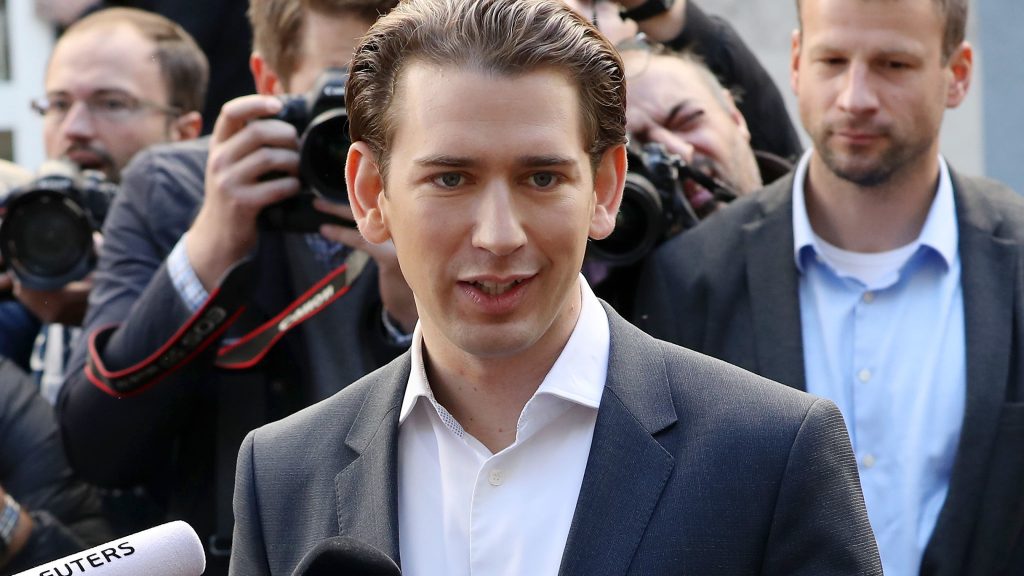Austria’s foreign minister is on course to become the country’s next chancellor and the world’s youngest head of government.
Sebastian Kurz, 31, has declared victory after near-final results from Sunday’s election put his People’s Party on 31.4%.
That figure is not enough for an overall majority, meaning he would either have to form a coalition or a minority government to become chancellor.
The eurosceptic Freedom Party is in second place with 27.4% and the centre-left Social Democrats are third with 26.7%.
Both Mr Kurz’s People’s Party and the Freedom Party have focused their campaigns on concerns about immigration and Islam.
If projections are correct, it could herald a coalition between the two parties – which would mean a rightward turn for Austria.
However, following his declaration of victory Mr Kurz stated he may be prepared to form a minority government.
“I would of course like to form a stable government,” he told broadcaster ORF. “If that cannot be done then there are other options.”
Mr Kurz said he planned to talk to all parties in parliament but would first wait for a count of postal ballots that begins today.
The country is currently governed by a coalition made up of the left-wing Social Democrats and the People’s Party, with Mr Kurz acting as foreign minister.
Mr Kurz has been credited with moving his centre-right party further to the right – particularly on the issues of migration and Muslims.
He has avoided the stronger rhetoric of Heinz-Christian Strache, the head of the Freedom Party, but Mr Kurz is still expected to capitalise on Austrian voters’ concerns about immigration.
He has promised voters “real change” if he is elected chancellor.
At 31, he would beat the leader of San Marino, Enrico Carattoni, and North Korea’s Kim Jong Un to become the world’s youngest leader.
Mr Carattoni is 32, while the Mr Kim is 33.



